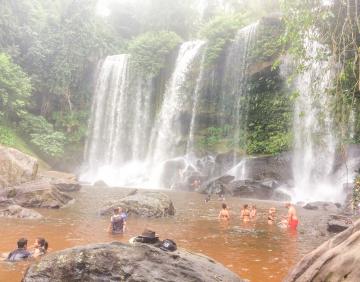The Angkor period of Cambodia was begun from the 9th to the 13th century and also known as a period of the significant soul for the Cambodian people. This period was a period of great achievement in architectures, arts, cultures, sculptures, irrigations, trades and military by Cambodian ancestors to the outside world. Today, Cambodian people are feeling so proud of being descendent from their great ancestors, who were diligent and who were constructed so many enormous monumental temples for a dowry to the humanity at the present day. Their monumental temples are becoming the world heritage sites which drew attention millions of tourists from anywhere in around the world to visit.
As Cambodians have a pride with the masterpiece of their ancestors’ legacy in the Angkor period, that is why today Cambodian have emblazoned Angkor Wat into their national flag for the symbol of the glorious civilization and prosperity.
Generally, to have accepted that, the Angkor period begun under the reign of king Jayavarman II in the 9th century AD, when this great king had liberated Cambodia from Sailendra dynasty's colony in Java which today known as Indonesia. Before this event had occurred, Javanese used to be a powerful country in Southeast Asia regional. But their powers and their resources were gradually fading down after they had spent so much powers to take control many countries in the region and as the same as they spent their energy to construct an enormous temple of Burobodur. These reasons making their state fallen down to get declining.
The Khmer royalty, who had captured as Java's hostages since the period of Chenla, now oversaw a good sign for proclaim independence for Cambodia or Kambuja frnm Javanese. This initiation was up raised under the leadership of young prince Jayavarrrian.
When the Khmers got independence from Java, they were undertaken so hard to build up their country until their country became a most powerful empire in the region of Southeast Asia, and the country stayed prosperous until the Thais sacked their magnificent capital city of Angkor in the 14th century. Then the glory of Angkor has died, one hundred years later in the 15th century Angkor had abandoned to an area near Phnom Penh and left the jungle devoured the stone temple structures, till the French came 'to control Cambodia in the 19th century as their colony again.
Within 400 years, the Khmers of Kambuja in the Angkor period were able to expand their territory as far as to China to its north's border, to Burma to its west's border, to Tonkin or Diet-Viet to its northeast's border, to Champa to its east's border and to the South China Sea to its south's border. An addition, the Khmers in the Angkor period even they could pervade their influential powers into the whole region of Southeast Asia as well. Besides, the tie of friendship and cooperation to the powerful countries in the region with China and India had firmly strengthened.
In the period of Angkor, there was a concept "King was God", and "King's orders was God's orders". From this theory, that is why in the Angkor period the Khmers had been getting a great achievement and success in all field sectors. The good toleration to all the religious beliefs by the sovereignty was an important key to make the Angkor period getting a great successful and strong. People in the Angkor period had a right to believe any religion. An addition, the women in the period of Angkor were dominant and respectful in the society liked in the Funan period as well.
Each king in the Angkor period was always worried how he could find the happiness and prosperity to his own people on behalf he was the King or the God. From this point of view, that a. king in the Angkor period concerning his country and his people's prosperous, as the proof for that, we can see all the kings of the Angkor always used their suffix name as "Varman". Varman is meaning of 'Armor" or "Protection" or "Victory". On the other hand, "Varman" is meaning, "king dares to sacrifice and dares to pay any price for his country and his people happiness".
The Angkor period was not only known as a period of achievement for architectures, arts, cultures and sculptures, trade and military but this period also known as a period of irrigational policy. In this period all the regions in around the Khmer empire's soil, they saw the traces of the advanced agriculture projects such as canals, reservoirs, pools and pond stretch around. And addition, how wonderful to hear an inscription says "The kings would not allow even one drop of Siem Reap river flowing from Mahendrapura (Phnom Kulen) to the Fresh Sea Water (Tonle Sap) without crossing the rice fields first". These efforts of our ancestors in the Angkor period made us who are the Cambodian people today a good reputation and a nation pride.
Remember, buying fake watches is much like buying any other kind of watch


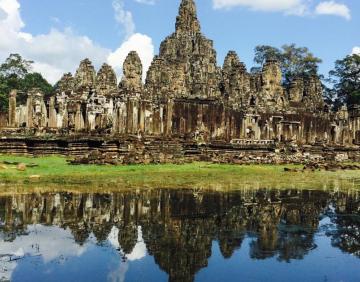
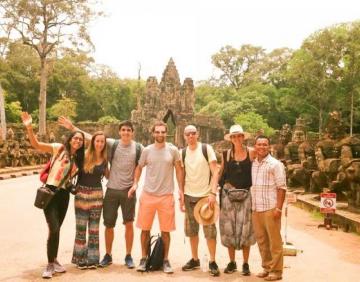
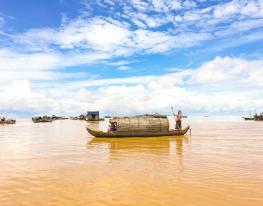











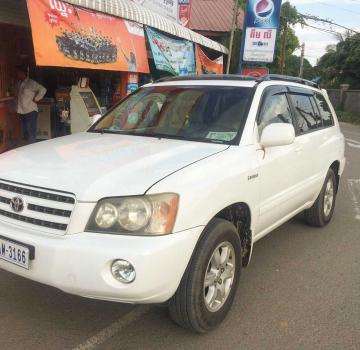
.JPG)



.JPG)





